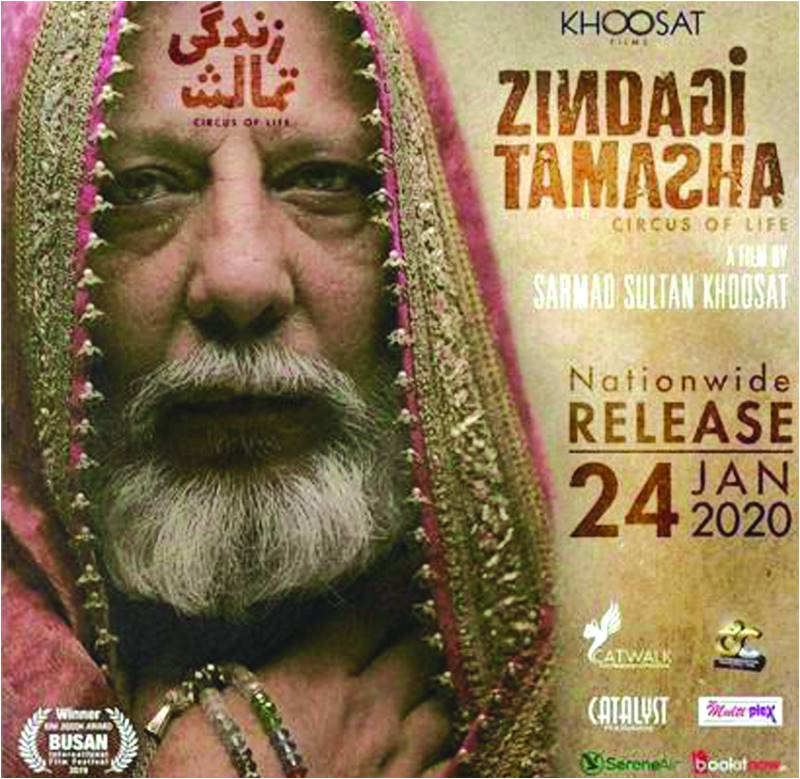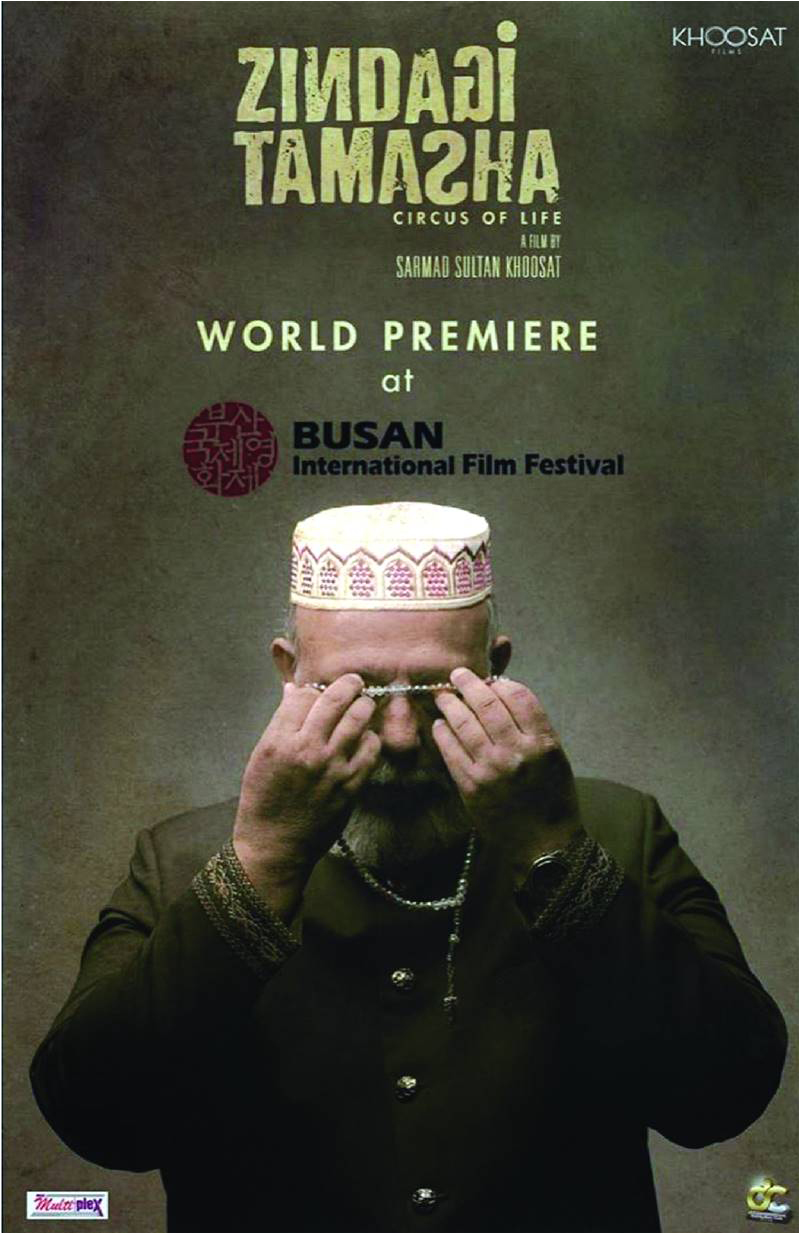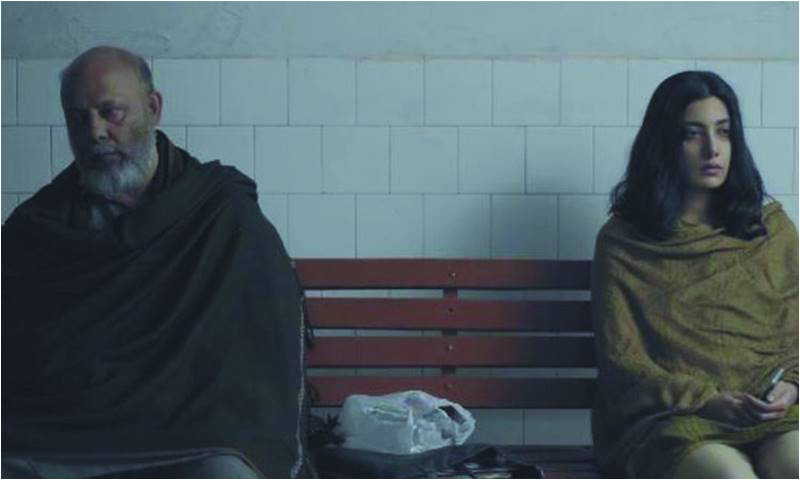
This week there is only one act that one could critique – one that is conspicuous by its absence.
On February 3, a review of Sarmad Khoosat’s Kim Ji-Seok Award winning Zindagi Tamasha was to take place, of which members of the Council of Islamic Ideology (CII) and the Tehrik-e-Labbaik Pakistan (TLP) were to be a part. On February 4, it was revealed to the media that the review never took place and has been postponed at the time of writing.
Other, more qualified individuals have better highlighted the merits and demerits of the unprecedented move of letting the CII review a film. Perhaps movie critics like us should similarly be hopeful of one day being asked to review whether or not certain laws comply with Islamic theology!

Similarly, much needed commentary has also been done on the move to give the TLP a stake in the film’s review. Granted, the TLP has brought its own brand of theatrics and histrionics to the center stage over the past couple of years, one would have to say that they still lack the requisite experience to qualify as movie critics just yet.
This then brings us to be point of the piece, which is strictly dedicated to applauding the latest tamasha on the abovementioned centre stage. And this latest performance, or lack thereof, has been brought to you by the PTI government, which in such a short span continues to leave its unflattering predecessors in their wake.
Protests over foreign videos and caricatures have known to halt the state amidst nationwide violence as past governments have stood by letting the entire country self-destruct over trivialities. However, a new benchmark has been set in capitulation this time – by the government’s downright refusal to protect its own artists against violent outrage over a piece of art that its own censor boards had previously approved! This surrender has come in front of those who generate livelihoods and relevance through their propensity to be readily and radically offended.

Their aggressive objection, and refusal to accept the write of this duplicitous state – something that has happened far too frequently in recent years, at the hands of the same group – was awarded the box office seat, and a chance at a new career in art critique.
It is a shame that the CII and TLP would get to watch – what in all likelihood is one of the finest films of recent years – while the rest of the country will either be deprived of it, or would be showed a version that dilutes the point the film is trying to make.
Letting the likes of CII and TLP have the final say on a film like Zindagi Tamasha, or any production that the Islamic clergy might find uncomfortable, is similar to asking Indian authorities whether films like Waar should be released in Pakistan.

What is especially astounding in this entire episode is that it just reaffirms that we are at such a distance from understanding the basic concept of freedom of speech – which centers around the right to offend – and indeed free expression that art especially requires for sustenance.
The government has basically thrown the already shrinking progressive segment of the Pakistani film industry, and in turn the proponents of freedom of expression, under the radical Islamist bus.
For this performance, the PTI government deserves special approbation for so successfully and convincingly abdicating its writ that it is almost surreal. It is a unique theatrical experience even by Pakistan’s standards, and one which could set the precedence for similar acts in the future.
On February 3, a review of Sarmad Khoosat’s Kim Ji-Seok Award winning Zindagi Tamasha was to take place, of which members of the Council of Islamic Ideology (CII) and the Tehrik-e-Labbaik Pakistan (TLP) were to be a part. On February 4, it was revealed to the media that the review never took place and has been postponed at the time of writing.
Other, more qualified individuals have better highlighted the merits and demerits of the unprecedented move of letting the CII review a film. Perhaps movie critics like us should similarly be hopeful of one day being asked to review whether or not certain laws comply with Islamic theology!

Similarly, much needed commentary has also been done on the move to give the TLP a stake in the film’s review. Granted, the TLP has brought its own brand of theatrics and histrionics to the center stage over the past couple of years, one would have to say that they still lack the requisite experience to qualify as movie critics just yet.
This then brings us to be point of the piece, which is strictly dedicated to applauding the latest tamasha on the abovementioned centre stage. And this latest performance, or lack thereof, has been brought to you by the PTI government, which in such a short span continues to leave its unflattering predecessors in their wake.
Protests over foreign videos and caricatures have known to halt the state amidst nationwide violence as past governments have stood by letting the entire country self-destruct over trivialities. However, a new benchmark has been set in capitulation this time – by the government’s downright refusal to protect its own artists against violent outrage over a piece of art that its own censor boards had previously approved! This surrender has come in front of those who generate livelihoods and relevance through their propensity to be readily and radically offended.

A new benchmark has been set in capitulation this time – by the government’s downright refusal to protect its own artists against violent outrage over a piece of art that its own censor boards had previously approved!
Their aggressive objection, and refusal to accept the write of this duplicitous state – something that has happened far too frequently in recent years, at the hands of the same group – was awarded the box office seat, and a chance at a new career in art critique.
It is a shame that the CII and TLP would get to watch – what in all likelihood is one of the finest films of recent years – while the rest of the country will either be deprived of it, or would be showed a version that dilutes the point the film is trying to make.
Letting the likes of CII and TLP have the final say on a film like Zindagi Tamasha, or any production that the Islamic clergy might find uncomfortable, is similar to asking Indian authorities whether films like Waar should be released in Pakistan.

What is especially astounding in this entire episode is that it just reaffirms that we are at such a distance from understanding the basic concept of freedom of speech – which centers around the right to offend – and indeed free expression that art especially requires for sustenance.
The government has basically thrown the already shrinking progressive segment of the Pakistani film industry, and in turn the proponents of freedom of expression, under the radical Islamist bus.
For this performance, the PTI government deserves special approbation for so successfully and convincingly abdicating its writ that it is almost surreal. It is a unique theatrical experience even by Pakistan’s standards, and one which could set the precedence for similar acts in the future.

